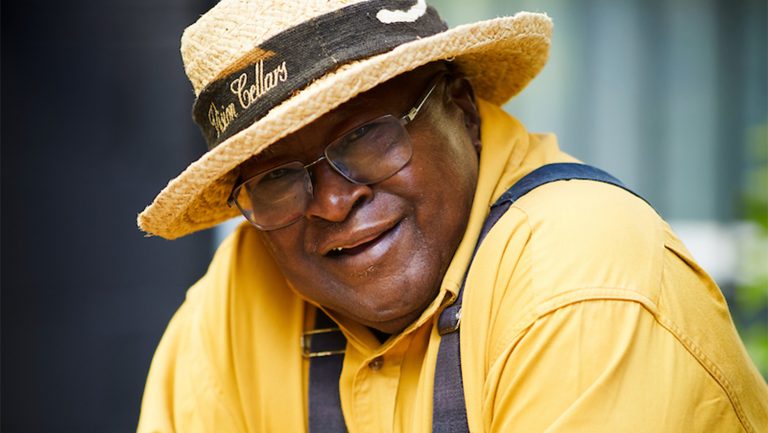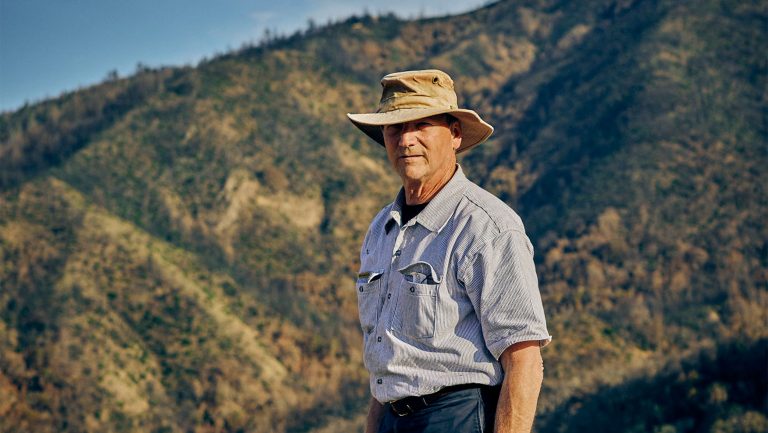In our Unsung Heroes series, we profile behind-the-scenes professionals in the drinks industry who are essential to making businesses function but who don’t normally get the spotlight.
“It wasn’t a tornado,” Michelle Meteraud says.
Meteraud is referring to Hurricane Matthew, the lethal tropical cyclone that descended on her city last year and the first Category 5 storm in almost a decade. She had been running the logistics operation at the Charleston-based beverage distribution company Advintage for about six months at the time.

Don’t miss the latest drinks industry news and insights. Sign up for our award-winning newsletters and get insider intel, resources, and trends delivered to your inbox every week.
In the face of an impending natural disaster, some logistics managers would consider postponing a few deliveries. After all, President Obama had declared a state of emergency at the time in South Carolina—a state in which Advintage services every major market. But that’s not how Meteraud runs her ship.
She knew she could contend with the hurricane. Intent on minimizing any disruption to customers, she worked with Advintage warehouse operations manager Jason Riddle and owner Henri Gabriel to alter the company’s logistics plan once it became clear that the hurricane would hit Charleston.
“We actually serviced all the areas that we service,” she says. In the end, Advintage customers’ deliveries weren’t affected by the storm—and Meteraud took only three hours off. “We were delivering all we could deliver to get everybody back by 2 pm,” she says, “to get home to their families.”
If Meteraud can predict an event, she can work around it. In the case of Hurricane Matthew, she leaned heavily on Advintage’s resources in North Carolina, which largely escaped the brunt of the storm, and she made sure that shipments went out early.
“Michelle’s diligence sets her apart from the others,” says Casey Lee, Advintage’s sales director. “The job is very specialized. Most employees, even within the same organization, have no idea what the job entails other than moving product from one location to another.”
Logistics managers such as Meteraud play a vital role in the beverage ecosystem, performing the often thankless, rarely sexy task of transporting alcohol from where it’s made to where it’s needed at retail shops, bars, and restaurants.
Generally hidden from view because of the business-to-business nature of their work, logistics managers are among the 74,000 workers employed as beverage wholesalers in roles that include everything from warehouse crews to field sales teams, according to the Wine & Spirits Wholesalers of America trade association. These workers make up a good chunk of the country’s beverage industry as a whole. The impact of their work is felt by businesses and customers alike. In fact, the price of alcohol and the variety available are often determined largely by the work of those in alcohol’s so-called second tier.
“Shelf pricing is based on our pricing,” says Brad Lord, a sales representative at Trinity Logistics, based in Seaford, Delaware. “If it costs a lot to ship, your favorite beer might go from $2 to $3 to $7 or $8.”
The second-tier also contributes to the wide variety of alcohol product options, according to those in the industry. While a soda maker might distribute its own goods, brewers, vintners, and other alcohol producers generally rely on third parties.
“You go into a grocery store to a soda pop aisle, and you see two types of soda, Coke and Pepsi,” says Bob Myers, president of the Associated Beer Distributors of Illinois. “You go into the beer aisle, and you will see hundreds of different brands [from] hundreds of different distributors.”
The challenges facing distributors are many and include controlling the temperature of products during long journeys from the warehouse to the customer and navigating the byzantine structure of laws regulating alcohol in 50 states and the District of Columbia. Empathy, creativity, attention to detail, and the ability to improvise are key skills for those looking to tackle such challenges effectively.
“In any industry,” says Meteraud, “to understand logistics, you need to start at the ground level.”
She speaks from experience, having started at the ground level herself. She has her trucking license, from a previous career transporting schoolbooks and other items. When it was her job to drive the truck, she says she was the first to tell a supervisor if she could not do what was asked of her. She says that this forthrightness helped her both as a trucker and as a logistics manager.
Meteraud says she never asks her drivers to do impossible tasks, and she always keeps extra drivers and trucks on call just in case. After all, “trucks are trucks, and trucks break down,” she says, and people get sick.
In addition to maintaining frequent communication with her drivers, Meteraud also relies on GPS. Advintage has GPS devices in each of its 34 high-top vans, allowing Meteraud to track shipments centrally from Charleston.
The other fundamental technology logistics managers rely on is refrigeration. “When it comes to beer and wine, the biggest challenge is temperature,” Meteraud says. She explains that especially in the heat of a Carolina summer, “reefer units,” as the temperature-controlled vehicles are called, are essential to transporting alcohol without destroying the product.
With a hundred things that can go wrong at any moment, the ability to improvise quickly and overcome obstacles is key. “A logistics manager can do everything correctly, and [something unforeseen can] pop up and jam up the works,” says Lee, Meteraud’s colleague at Advintage. “Whether we are looking at inbound or outbound freight, each has its own uncontrollable impediments,” she says, “and how managers deal with the hurdles is where the heroics come into play. I’m not going to pretend that I know everything that [Meteraud] does on a daily basis. My head starts to spin when we do get time to catch up.”
For Meteraud, working in the alcohol industry means that downtime is rare, because business is always booming. “It’s a funny business—when the economy is down, people still drink,” Meteraud says. And when the economy is up? Well, people drink then too, she says. “Everybody likes to throw a party.”
And if Meteraud is managing the logistics, not even a hurricane can spoil their plans.

Dispatch
Sign up for our award-winning newsletter
Don’t miss the latest drinks industry news and insights—delivered to your inbox every week.
Tucker Higgins is a reporter based in Brooklyn. He received a degree in international relations from the College of William in Mary, and graduated from the Dow Jones News Fund’s business reporting program. View more of his work at https://tuckerhiggins.press.








